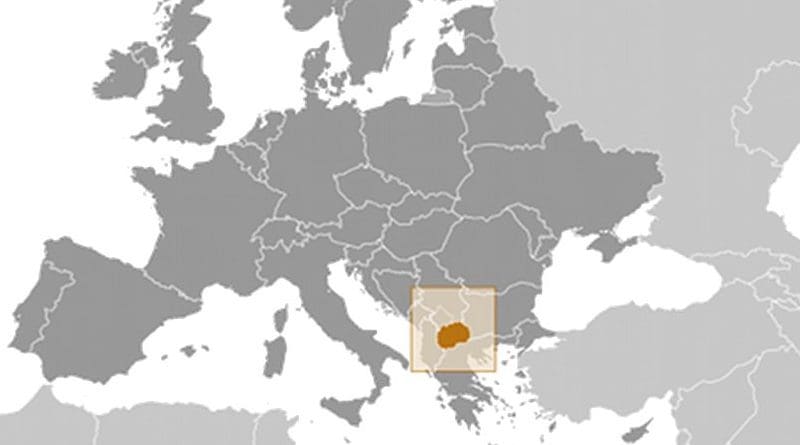Macedonia President Pardons Politicians Facing Charges
By Sinisa Jakov Marusic
Macedonian President Gjorge Ivanov on Tuesday abruptly pardoned all politicians facing crime investigations – undermining the work of the Special Prosecution, which is tasked with investigating wire-tapping allegations and other alleged crimes.
Preisdent Ivanov told a press conference on Tuesday that he had not consulted any political parties before deciding to pardon politicians facing crime probes – most of whom are from the ruling parties and are being investigated by the recently formed special prosecution.
“I decided to use my constitutional right to help overcome the political crisis”, Ivanov said adding that the crisis had been “imposed from abroad.” Ivanov said he acted “in the interest of the country”.
Ivanov said that the country’s judiciary had come under immense pressure from the international community and this had to stop.
“Representatives of the international community walk in our courts while judges try to decide whether someone should be detained or not,” Ivanov said.
The decision took the public by surprise.
Macedonia’s ruling VMRO DPMNE party expressed “deep disagreement” with President Gjorge Ivanov’s sudden decision to pardon all politicians facing crime investigations.
“This move hampers our will and efforts to unmask all the constructions, lies and manipulations that were imposed and directed towards us as part of a premeditated scenario,” VMRO DPMNE said in a press release on Tuesday evening.
Opposition and several civil organizations announced protests against this move.
Macedonian opposition leader Zoran Zaev called on massive protests.
“This is a coup… Ivanov today became direct accomplice in the criminal association against Macedonia” Zaev said.
“This is the lowest and most despicable thing that could have happened,” the former head of the Macedonian Constitutional Court, Trendafil Ivanovski, told BIRN.
“We sensed the danger of this happening but I expected the President to put care for his citizens and democracy above all else. This so-called President has completely destroyed the year-long efforts of the local and international community to bring things back to normal,” Ivanovski said.
Former Foreign Minister Denko Maleski said it only proved that the government in Macedonia remains uncontrolled by democratic mechanisms.
“What is the purpose now of the Special Prosecution, if it cannot [criminally] try the main actors? Will their work now make any sense?” Maleski asked.
The President’s move came after the Special Prosecution launched several high-level investigations into former ministers and high state officials. Charges include election rigging, torture of political opponents and illegal destruction of police surveillance equipment.
The prosecution, formed last autumn as part of the EU-brokered political crisis agreement, is also probing claims of “falsifying personal identification documents and breaches of electoral rights”.
The case concerns former Interior Minister Gordana Jankuloska and former Transport Minister Mile Janakieski.
The prosecution is also investigating claims that the former chief of the secret police, Saso Mijalkov, solicited bribes to smooth the procurement of Israeli surveillance equipment in 2011.
The US Embassy to Macedonia said “We are seeking further detail and clarification. The President’s statement however raises serious concerns about Macedonia’s commitment to the rule of law.”
In his first reaction, former ambassador and political analyst Arsim Zekoli told BIRN that he was not shocked.
“In a country where it is a common knowledge that it is run by one political party and where crime and corruption flourish, this decision was to be expected. This is a consequence of the culture of impunity that the EU has ignored for the past ten years,” Zekoli said.
“We have no parliament, no judiciary and a police controlled by a political party. We are becoming a precedent on a global level. This is indescribable,” Zekoli said.
The crisis in Macedonia revolves around opposition claims that Gruevski’s government was responsible for the illegal wiretapping of over 20,000 people as well as other crimes.
Gruevski – who has held power since 2006 but who resigned as Prime Minister earlier this year under the terms of the EU accord – says unnamed foreign intelligence services “fabricated” the wiretapping tapes and gave them to the opposition to destabilize the country.
The President’s move also comes after the opposition said it will not participate in the June 5 elections, after parliament was dissolved with only the ruling parties present.


The president of the Republic of Macedonia decided to pardoned many criminal acts,but also put a stop to the American ambassador who felt he is part of the government dictating who and how the judiciary will work. Personally,I am against Presidents decision on abolishing the criminals,but very happy for putting a stop to Jess Bailey and Garett for interfering in the internal affairs of Macedonia.The American ambassador was heavily involved in the failed “Orange Revolution “in Kumanovo,and that is the reason the Special Court of Justice was chosen by Bayley to hide his involvement.The sooner the Secretary of State John Kerry re-calls him from Macedonia the better will be.Macedonia can be swayed easily towards Russia than US.